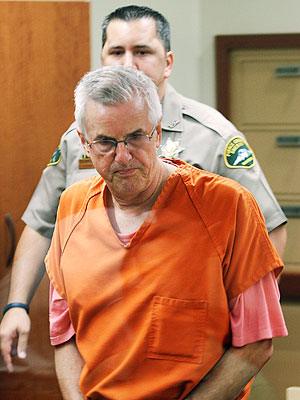CAIRO (Reuters) - Egypt's military said on Saturday only dialogue could avert "catastrophe", stepping into a crisis pitting an Islamist president against opponents of his drive to reshape a nation in turmoil since Hosni Mubarak's overthrow.
An army statement, which state radio and television interrupted their programs to read out, told feuding factions that a solution to the upheaval in the most populous Arab nation should not contradict "legitimacy and the rules of democracy".
That sounded like a swipe at protesters who have besieged the palace of freely elected President Mohamed Mursi and who have called for his removal, going beyond mainstream opposition demands for him to retract a decree that expanded his powers.
The statement also called for a "serious" national dialogue - perhaps one more credible than talks convened by Mursi on Saturday in the absence of opposition leaders. They insist he must first scrap his November 22 decree, defer next week's popular vote on a new constitution and allow the text to be revised.
Deep rifts have emerged over the destiny of a country of 83 million where Mubarak's ouster after 30 years of autocratic rule led to a messy army-led transition, with the Muslim Brotherhood and its allies winning two elections. Many Egyptians crave a return to stability and economic recovery.
The spokesman for the main Islamist coalition demanded that the referendum go ahead on time on the constitution drafted by an Islamist-led assembly from which liberals had walked out.
The army, which ran Egypt for months after Mubarak fell in February 2011, again cast itself primarily as the neutral guarantor of the nation and a military source said there was no plan to retake control of the country or its turbulent streets.
"DARK TUNNEL"
"The armed forces affirm that dialogue is the best and only way to reach consensus," the statement said. "The opposite of that will bring us to a dark tunnel that will result in catastrophe and that is something we will not allow."
The military, however, did seem poised to take a more active role in security arrangements for the December 15 referendum.
A cabinet source said the cabinet had discussed reviving the army's ability to make arrests if it were called upon to back up police, who normally provide security for elections.
Mursi's office said the "national dialogue", chaired by the president, had begun with about 40 political and other public figures discussing "means to reach a solution to differences over the referendum...and the constitutional decree".
The instability in Egypt worries the West, especially the United States, which has given Cairo billions of dollars in military and other aid since it made peace with Israel in 1979.
The army issued its statement while protesters were still camped out by the gates of the presidential palace.
The tens of thousands of Mursi foes who surged past tanks and barbed wire to reach the palace gates on Friday night had dispersed. But a hard core stayed overnight in a score of tents.
Some had spray-painted "Down with Mursi" on tanks of the elite Republican Guard posted there after clashes between rival groups killed at least seven people and wounded 350 this week.
Others draped the tanks with posters of Mursi and the word "Leave" scored across his face in red letters.
"We are no longer calling for scrapping the decree and delaying the referendum," Samir Fayez, a Christian protester at the palace, said. "We have one demand in five letters: leave."
Nearby, a Mursi supporter named Mohamed Hassan was quietly observing the scene. He suggested that the Muslim Brotherhood and its ultra-orthodox Salafi Islamist allies could easily overwhelm their foes if they chose to mobilize their base.
"The Brotherhood and Salafis by themselves are few but they have millions of supporters who are at home and haven't taken it to the streets yet," murmured the 40-year-old engineer.
"HATE US, BUT TALK"
The Muslim Brotherhood's supreme guide, Mohamed Badie, denounced opposition protests that have swirled around the walls of the Mursi's palace, saying they "ruin legitimacy".
Badie said eight people, all of them Brotherhood members, had been killed this week and urged the interior minister to explain why police had failed to prevent assailants from torching the organization's headquarters and 28 other offices.
"Get angry with the Brotherhood and hate us as much as you like, but be reasonable and preserve Egypt's unity," he told a news conference. "We hope everyone gets back to dialogue."
The well-organized Brotherhood, which thrust Mursi from obscurity to power, remains his surest source of support, with over 80 years of religious and political struggle behind it.
In the referendum, due to be followed by a parliamentary election, Islamist proponents of the constitution may benefit from the votes of millions of Egyptians desperate for the country to move on and revive its crippled economy.
A Brotherhood official welcomed the army's "balanced" line. Former Arab League chief Amr Moussa, now an opposition leader, said the army was reacting to an "enormously dangerous" crisis.
The military was the power behind all previous presidents and an army council temporarily took over after Mubarak's fall. However, Mursi pushed the generals aside in August and they had shown little appetite to intervene in Egypt's latest crisis.
(Additional reporting by Edmund Blair, Omar Fahmy and Yasmine Saleh; Writing by Alistair Lyon; Editing by Mark Heinrich)











